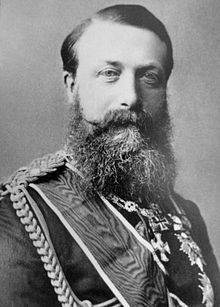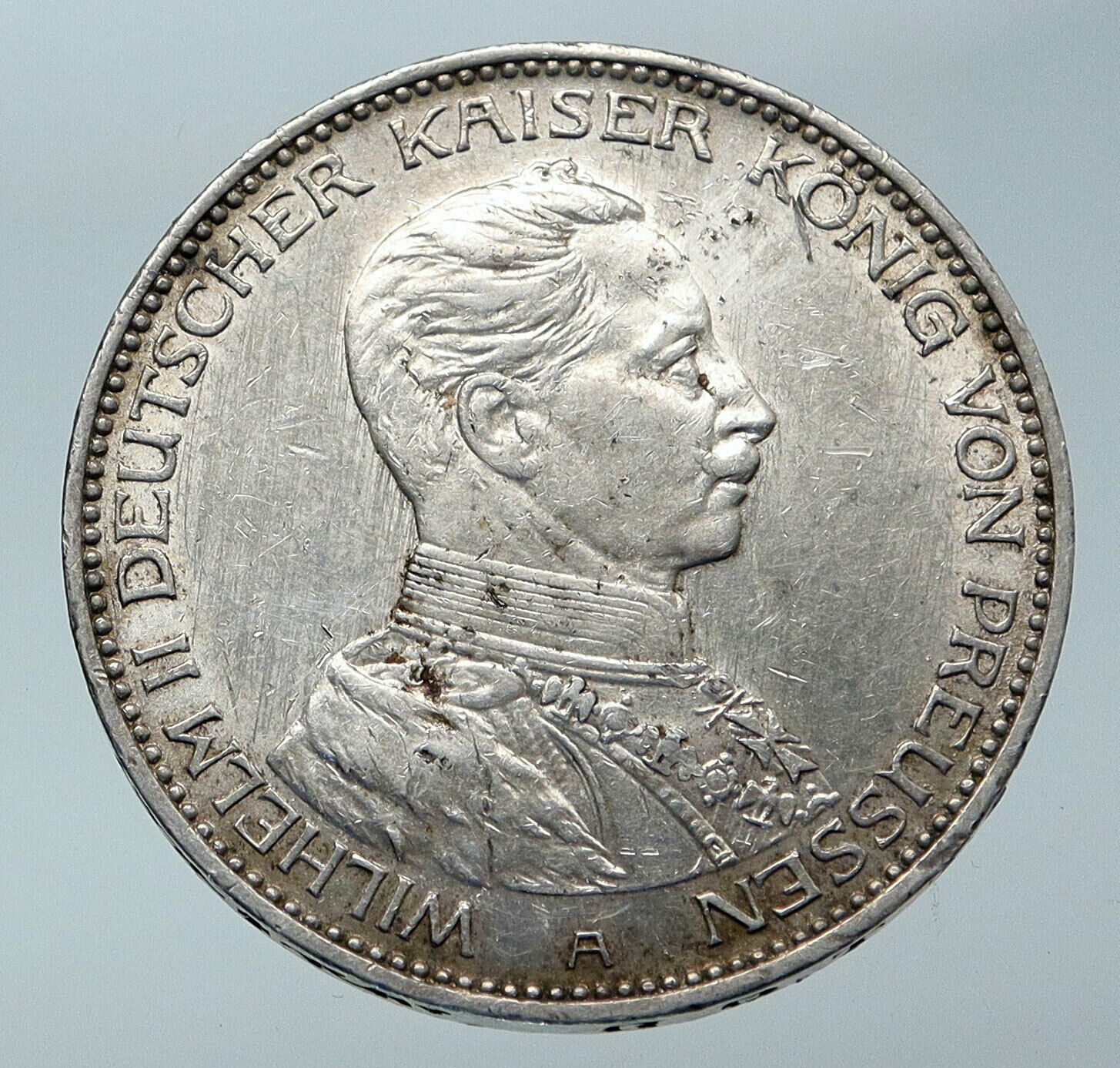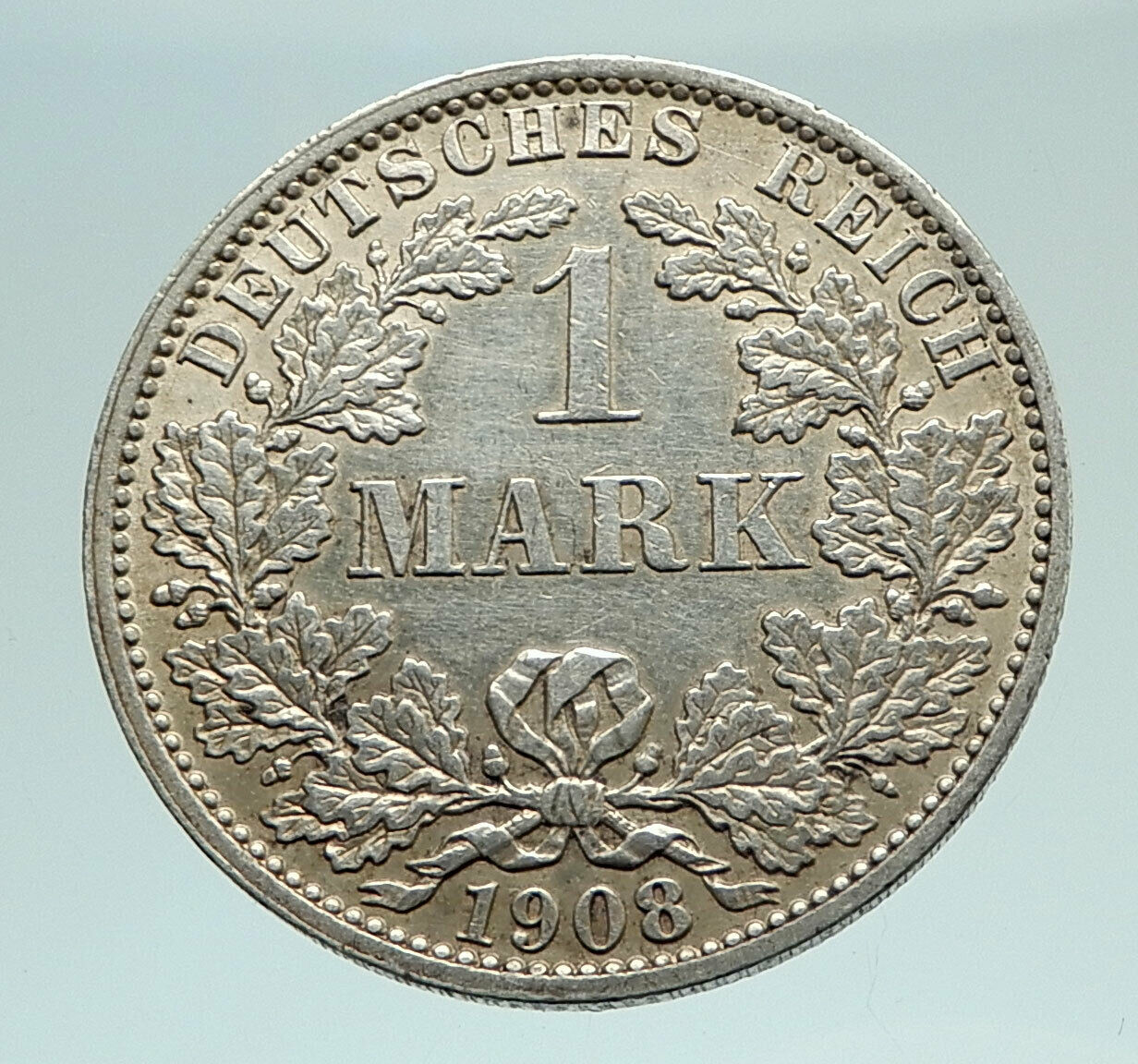|
German States – Baden – Duke Friedrich I
Victory in War with France
1871 Copper Kreuzer 21mm (4.33 grams)
Reference: KM# 252 (1871)
BADEN 1. KREUZER 1871, Crowned shield with supporters.
ZU DES DEUTSCHEN REICHES FRIEDENS- FEIER 1871, Radiant star above.
You are bidding on the exact item pictured, provided with a Certificate of Authenticity and Lifetime Guarantee of Authenticity.
 Frederick I (Friedrich Wilhelm Ludwig) (9 September 1826 – 28 September 1907) was the sovereign Grand Duke of Baden reigning from 1856 to 1907. Frederick I (Friedrich Wilhelm Ludwig) (9 September 1826 – 28 September 1907) was the sovereign Grand Duke of Baden reigning from 1856 to 1907.
Frederick was born in Karlsruhe on 9 September 1826. He was the third son of Grand Duke Leopold (1790-1852) and of his wife, Grand Duchess Sophie (1801-1865), who was born Princess of Sweden, daughter of King Gustav IV Adolf of Sweden.
He became the heir presumptive to the Grand Duchy upon the death of his father in 1852 and the accession of his brother as Grand Duke Louis II. Due to his brother’s mental ill-health, he was regent ad interim of Baden in 1852-1855, and took the title of Grand Duke in 1856. His brother, Louis II, died in 1858. He was considered a relatively liberal supporter of a constitutional monarchy. During his reign the option of civil marriages was introduced in Baden as well as direct elections to the Lower House of the Parliament of Baden in 1904.
In 1856, he married Princess Louise, daughter of Prince Wilhelm of Prussia and his wife, Augusta of Saxe-Weimar. The couple had three children.
The Grand Duke had a pivotal role in the history of the Zionist Movement. In 1896 the Grand Duke met Theodor Herzl (the founder of political Zionism) via their mutual acquaintance the reverend William Hechler, and helped Herzl in obtaining an audience with his nephew, the German Emperor. After some persuasion on the part of the Grand Duke, the Emperor accepted the appeal for an audience. It took place in Palestine on 2 November 1898, during the Kaiser’s visit to inaugurate the Church of the Redeemer, Jerusalem.
Frederick I was present at the proclamation of the German Empire at Versailles in 1871, as he was the only son-in-law of the Emperor and one of the reigning sovereigns of Germany. He died at his summer residence at the island of Mainau in southern Germany on 28 September 1907. Today, Mainau is owned by the Lennart Bernadotte Foundation, created by Frederick’s great-grandson Count Lennart Bernadotte, (1909-2004).
 Baden (/ˈbɑːdən/; German: [ˈbaːdn̩]) is a historical German territory. Together with Württemberg and the former Prussian Province of Hohenzollern, two other historical territories, it forms the Baden (/ˈbɑːdən/; German: [ˈbaːdn̩]) is a historical German territory. Together with Württemberg and the former Prussian Province of Hohenzollern, two other historical territories, it forms the Federal State of Baden-Württemberg. The margraves of Baden originated from the house of Zähringen.[1] Baden is named after the margraves’ residence Hohenbaden Castle [de] in Baden-Baden. The capital of the Grand Duchy of Baden was Karlsruhe. Federal State of Baden-Württemberg. The margraves of Baden originated from the house of Zähringen.[1] Baden is named after the margraves’ residence Hohenbaden Castle [de] in Baden-Baden. The capital of the Grand Duchy of Baden was Karlsruhe.
Following the dissolution of the old Duchy of Swabia, Baden underwent a history which can be summarized as follows:
- Margraviate of Baden (1112-1806)
- Electorate of Baden (1803-1806)
- Grand Duchy of Baden (1806-1918), enlarged to four or five times the size of the Margraviate.
- Republic of Baden (1918-1945)
After World War II this territory was subdivided between Württemberg-Baden and South Baden. Finally, the state of Baden-Württemberg was formed in 1952.
 Germany, officially the Federal Republic of Germany, officially the Federal Republic of  Germany is a federal parliamentary republic in western-central Europe. It includes 16 constituent states and covers an area of 357,021 square kilometres (137,847 sq mi) with a largely temperate seasonal climate. Its capital and largest city is Berlin. With 81 million inhabitants, Germany is the most populous member state in the European Union. After the United States, it is the second most popular migration destination in the world. Germany is a federal parliamentary republic in western-central Europe. It includes 16 constituent states and covers an area of 357,021 square kilometres (137,847 sq mi) with a largely temperate seasonal climate. Its capital and largest city is Berlin. With 81 million inhabitants, Germany is the most populous member state in the European Union. After the United States, it is the second most popular migration destination in the world.
Various Germanic tribes have occupied northern Germany since classical antiquity. A region named Germania was documented before 100 CE. During the Migration Period the Germanic tribes expanded southward. Beginning in the 10th century, German territories formed a central part of the Holy Roman Empire. During the 16th century, northern German regions became the centre of the Protestant Reformation.
The rise of Pan-Germanism inside the German Confederation resulted in the unification of most of the German states in 1871 into the Prussian-dominated German Empire. After World War I and the German Revolution of 1918-1919, the Empire was replaced by the parliamentary Weimar Republic. The establishment of the Third Reich in 1933 led to World War II and the Holocaust. After 1945, Germany split into two states, East Germany and West Germany. In 1990, the country was reunified.
 In the 21st century, Germany is a great power and has the world’s fourth-largest economy by nominal GDP, as well as the fifth-largest by PPP. As a global leader in several industrial and technological sectors, it is both the world’s third-largest exporter and importer of goods. Germany is a developed country with a very high standard of living sustained by a skilled and productive society. It upholds a social security and universal health care system, environmental protection and a tuition free university education. In the 21st century, Germany is a great power and has the world’s fourth-largest economy by nominal GDP, as well as the fifth-largest by PPP. As a global leader in several industrial and technological sectors, it is both the world’s third-largest exporter and importer of goods. Germany is a developed country with a very high standard of living sustained by a skilled and productive society. It upholds a social security and universal health care system, environmental protection and a tuition free university education.
Germany was a founding member of the European Union in 1993. It is part of the Schengen Area, and became a co-founder of the Eurozone in 1999. Germany is a member of the United Nations, NATO, the G8, the G20, and the OECD. The national military expenditure is the 9th highest in the world. Known for its rich cultural history, Germany has been continuously the home of influential artists, philosophers, musicians, sportsmen, entrepreneurs, scientists and inventors.
|





 Frederick I (Friedrich Wilhelm Ludwig) (9 September 1826 – 28 September 1907) was the sovereign Grand Duke of Baden reigning from 1856 to 1907.
Frederick I (Friedrich Wilhelm Ludwig) (9 September 1826 – 28 September 1907) was the sovereign Grand Duke of Baden reigning from 1856 to 1907.  Baden (/ˈbɑːdən/; German: [ˈbaːdn̩]) is a historical German territory. Together with Württemberg and the former Prussian Province of Hohenzollern, two other historical territories, it forms the
Baden (/ˈbɑːdən/; German: [ˈbaːdn̩]) is a historical German territory. Together with Württemberg and the former Prussian Province of Hohenzollern, two other historical territories, it forms the Federal State of Baden-Württemberg. The margraves of Baden originated from the house of Zähringen.[1] Baden is named after the margraves’ residence Hohenbaden Castle [de] in Baden-Baden. The capital of the Grand Duchy of Baden was Karlsruhe.
Federal State of Baden-Württemberg. The margraves of Baden originated from the house of Zähringen.[1] Baden is named after the margraves’ residence Hohenbaden Castle [de] in Baden-Baden. The capital of the Grand Duchy of Baden was Karlsruhe.  Germany, officially the Federal Republic of
Germany, officially the Federal Republic of  Germany is a federal parliamentary republic in western-central Europe. It includes 16 constituent states and covers an area of 357,021 square kilometres (137,847 sq mi) with a largely temperate seasonal climate. Its capital and largest city is Berlin. With 81 million inhabitants, Germany is the most populous member state in the European Union. After the United States, it is the second most popular migration destination in the world.
Germany is a federal parliamentary republic in western-central Europe. It includes 16 constituent states and covers an area of 357,021 square kilometres (137,847 sq mi) with a largely temperate seasonal climate. Its capital and largest city is Berlin. With 81 million inhabitants, Germany is the most populous member state in the European Union. After the United States, it is the second most popular migration destination in the world. In the 21st century, Germany is a great power and has the world’s fourth-largest economy by nominal GDP, as well as the fifth-largest by PPP. As a global leader in several industrial and technological sectors, it is both the world’s third-largest exporter and importer of goods. Germany is a developed country with a very high standard of living sustained by a skilled and productive society. It upholds a social security and universal health care system, environmental protection and a tuition free university education.
In the 21st century, Germany is a great power and has the world’s fourth-largest economy by nominal GDP, as well as the fifth-largest by PPP. As a global leader in several industrial and technological sectors, it is both the world’s third-largest exporter and importer of goods. Germany is a developed country with a very high standard of living sustained by a skilled and productive society. It upholds a social security and universal health care system, environmental protection and a tuition free university education.




